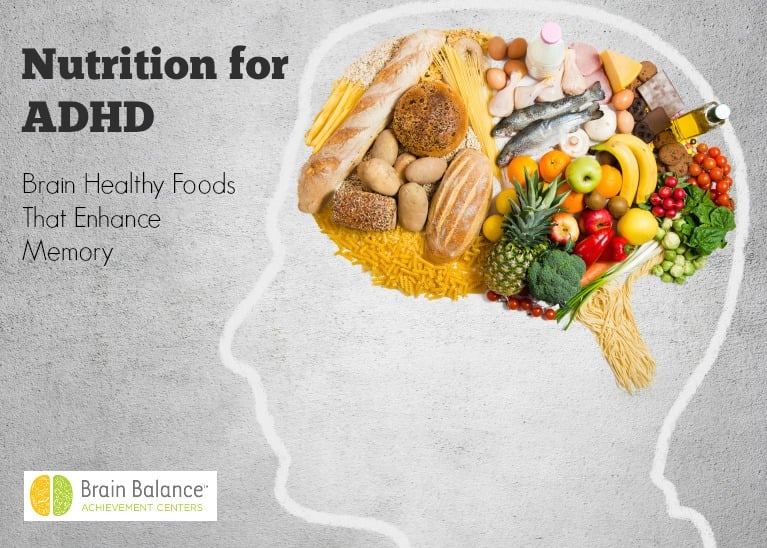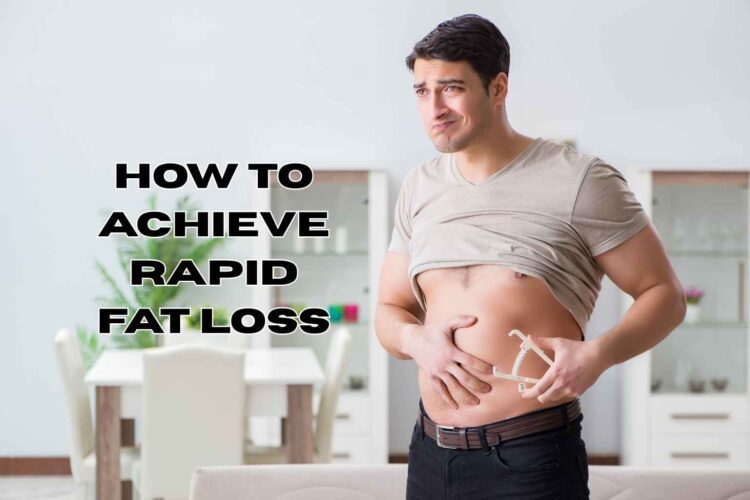ADHD can make weight loss challenging. But with the right tips, it’s achievable.
ADHD, or Attention Deficit Hyperactivity Disorder, affects focus and impulse control. These symptoms can impact eating habits and exercise routines. Many people with ADHD struggle with weight management. The good news is, there are strategies that can help. Understanding how ADHD influences behavior is key to creating effective weight loss plans.
People with ADHD often face unique obstacles, but tailored approaches can make a difference. From mindful eating to structured routines, these tips can support your journey. This blog will explore practical weight loss strategies that align with ADHD needs. Ready to take control of your health? Let’s dive in and discover how to make lasting changes.
:max_bytes(150000):strip_icc()/adhd-diet-5206146-Final-bba10b9cb9074b44b23550693f024a56.jpg)
Credit: www.verywellhealth.com
Introduction To Adhd And Weight Loss
Attention Deficit Hyperactivity Disorder (ADHD) affects many people worldwide. This condition often leads to difficulties in focusing and impulsivity. These challenges can impact various aspects of life, including weight management. Understanding the relationship between ADHD and weight loss can help individuals develop effective strategies to achieve their health goals.
Impact Of Adhd On Weight
ADHD can influence weight in different ways. Many individuals with ADHD struggle with impulsive eating habits. They often find it hard to stick to a regular eating schedule. This can lead to weight gain over time.
Another factor is the medication used to treat ADHD. Some medications can affect appetite. It can either increase or decrease it. This makes weight management more challenging.
Understanding these impacts is crucial for developing a successful weight loss plan.
Challenges Faced By Individuals
People with ADHD face unique challenges when it comes to weight loss. Here are some common issues:
- Impulsivity: Making quick, unhealthy food choices.
- Inattention: Difficulty following a diet plan consistently.
- Emotional Eating: Using food to cope with stress or emotions.
- Time Management: Struggling to find time for exercise.
- Medication Side Effects: Changes in appetite due to medication.
Addressing these challenges requires a tailored approach. Strategies must consider both ADHD symptoms and weight loss goals.
Setting Realistic Goals
Weight loss can be challenging for those with ADHD. Setting realistic goals is crucial. It ensures you stay motivated and do not get overwhelmed. Breaking down your goals into smaller, manageable steps can help you stay on track.
Importance Of Small Steps
Making progress in small steps builds confidence. It is easier to reach smaller goals. This method prevents feelings of failure. For example:
- Walk for 10 minutes daily.
- Drink an extra glass of water each day.
- Replace one sugary snack with a healthy option.
These small changes can lead to significant results over time. It keeps you motivated and focused.
Tracking Progress
Tracking your progress is important. It shows how far you have come. It helps you identify what works and what does not. You can use:
- A journal
- A mobile app
- A simple calendar
Write down your daily activities and achievements. Celebrate your small victories. This keeps you motivated and engaged in your journey.
| Goal | Small Step | Tracking Method |
|---|---|---|
| Lose 10 pounds | Walk 10 minutes daily | Journal |
| Drink more water | One extra glass daily | Mobile app |
| Eat healthier | Replace one snack | Calendar |
Tracking progress helps you stay on the right path. It encourages you to keep going, even on tough days.
Creating A Structured Routine
Creating a structured routine can help manage ADHD and aid weight loss. A well-organized schedule reduces stress and enhances productivity. Structured routines also make it easier to follow healthy habits. Here are some practical tips to get you started.
Meal Planning Tips
Meal planning helps in maintaining a balanced diet. Prepare a weekly menu to avoid last-minute unhealthy choices. Cook in bulk and store portions for quick meals. Use a food diary to track what you eat. This helps identify patterns and make necessary adjustments. Choose simple recipes to reduce overwhelm. Keep healthy snacks available to curb cravings. Drink plenty of water throughout the day.
Consistent Exercise Schedules
Exercise helps manage ADHD symptoms and aids weight loss. Schedule your workouts at the same time each day. This builds a habit and makes it easier to stick to. Choose activities you enjoy to stay motivated. Mix different types of exercises to keep things interesting. Set small, achievable goals to track your progress. Use reminders or alarms to stay on schedule. Find a workout buddy for added support and accountability.
Mindful Eating Practices
For individuals with ADHD, maintaining a healthy weight can be challenging. Mindful eating practices can help manage this. They encourage awareness of what and how much you eat. This awareness can lead to better food choices and portion control. Here are some effective mindful eating practices to consider.
Avoiding Distractions During Meals
Distractions can lead to overeating. Focus on your meal. Turn off the TV, put away your phone, and sit at the table. This helps you pay attention to what you’re eating. It also makes meals more enjoyable.
Here are some tips to avoid distractions:
- Eat in a quiet environment.
- Set a specific mealtime routine.
- Chew your food slowly and thoroughly.
Recognizing Hunger Cues
Understanding your hunger cues is crucial. It helps prevent overeating or undereating. Recognize when your body is truly hungry or just bored.
Use this table to differentiate physical hunger from emotional hunger:
| Physical Hunger | Emotional Hunger |
|---|---|
| Gradually develops | Sudden and urgent |
| Can wait to be satisfied | Needs immediate satisfaction |
| Any food satisfies | Craves specific foods |
Pay attention to these cues:
- Stomach growling
- Feeling lightheaded
- Lack of energy
Respond to these cues with healthy snacks or meals. This ensures you eat for hunger, not out of habit.
Incorporating Physical Activity
Incorporating physical activity can be a game-changer for those with ADHD. Regular exercise helps manage symptoms and aids in weight loss. Finding the right activities and maintaining consistency can make a significant difference. Here are some tips to get started.
Finding Enjoyable Activities
Finding activities you enjoy is crucial. You are more likely to stick with them. Consider activities like dancing, swimming, or biking. These can be both fun and effective. Also, try different sports or group activities. Social interaction can increase motivation. Keep trying until you find what works best for you.
Short, Frequent Workouts
Short, frequent workouts can be very effective. Aim for 10-15 minute sessions. Do this multiple times a day. High-intensity interval training (HIIT) can be a great choice. It combines short bursts of activity with rest periods. This keeps your mind engaged and your body active. Even a quick walk can make a difference.
Remember, consistency is key. Set small, achievable goals. Celebrate your progress. Over time, these small steps lead to significant improvements.

Credit: www.brainbalancecenters.com
Managing Impulsivity
Managing impulsivity is crucial for those with ADHD, especially for weight loss. Impulsive eating can derail even the best diet plans. It often leads to consuming unhealthy foods. By controlling impulsivity, you can make better food choices. This, in turn, supports your weight loss goals.
Healthy Snack Options
Keeping healthy snacks on hand helps manage impulsive eating. Choose snacks rich in protein and fiber. These keep you full longer. Examples include nuts, yogurt, and fresh fruit. These options satisfy cravings without adding extra calories. Prepare snacks in advance to avoid reaching for junk food.
Avoiding Trigger Foods
Identifying and avoiding trigger foods is another key step. These are foods you struggle to eat in moderation. Common triggers include sweets, chips, and fast food. Keeping these out of the house helps prevent impulsive eating. Replace them with healthier alternatives. For example, if you crave something sweet, opt for fruit instead.
Seeking Support
Managing ADHD while trying to lose weight can be challenging. Seeking support is essential. It can make the journey more manageable and less lonely. Support from professionals and communities can provide guidance and encouragement. This section will explore two key areas for seeking support: professional guidance and support groups.
Professional Guidance
Consulting with a healthcare professional can be very helpful. Doctors, nutritionists, and therapists can provide tailored advice. They understand the unique challenges ADHD presents. A professional can help develop a personalized plan. This may include diet, exercise, and behavioral strategies. Regular check-ins ensure you stay on track and make necessary adjustments.
Support Groups And Communities
Joining a support group can provide a sense of community. Sharing experiences with others who understand ADHD can be comforting. Online and in-person groups offer a platform to exchange tips and encouragement. These communities often provide valuable resources and insights. They can help you stay motivated and committed to your weight loss goals.
Staying Motivated
Staying motivated is essential when trying to lose weight, especially with ADHD. It can be tough to maintain focus and consistency. But with the right strategies, you can achieve your goals. This section provides tips on how to stay motivated throughout your weight loss journey.
Celebrating Small Wins
Recognizing small achievements can keep you motivated. It is important to celebrate these moments. They add up and help you see progress.
- Track your progress: Keep a journal of your daily achievements.
- Set mini-goals: Break down your larger goal into smaller, manageable tasks.
- Reward yourself: Treat yourself to something enjoyable, like a movie night or a favorite snack.
Dealing With Setbacks
Setbacks are part of any journey. Knowing how to handle them can keep you on track.
- Stay positive: Remember that setbacks are temporary.
- Learn from mistakes: Understand what went wrong and plan to avoid it in the future.
- Seek support: Talk to friends, family, or a coach for encouragement.

Credit: www.everydayhealth.com
Frequently Asked Questions
Can Adhd Affect Weight Loss?
Yes, ADHD can impact weight loss. People with ADHD may struggle with impulsive eating, making weight management challenging.
What Are Effective Weight Loss Tips For Adhd?
Effective tips include sticking to a regular meal schedule, avoiding processed foods, and incorporating exercise into daily routines.
How Can Exercise Help Adhd And Weight Loss?
Exercise can improve focus and mood while burning calories, making it beneficial for both ADHD management and weight loss.
Are There Specific Diets For Adhd Weight Loss?
No specific diet exists, but balanced meals with protein, fiber, and healthy fats can help manage ADHD symptoms and weight.
Conclusion
Achieving weight loss with ADHD is possible with the right strategies. Focus on balanced meals and regular exercise. Small, manageable goals can make a big difference. Stay consistent and patient with your efforts. Remember, every step counts towards better health.
Support from friends and family can help. Keep tracking your progress and adjust as needed. Celebrate your successes, no matter how small. Stay positive and committed to your journey. You can do it!












Leave a Reply